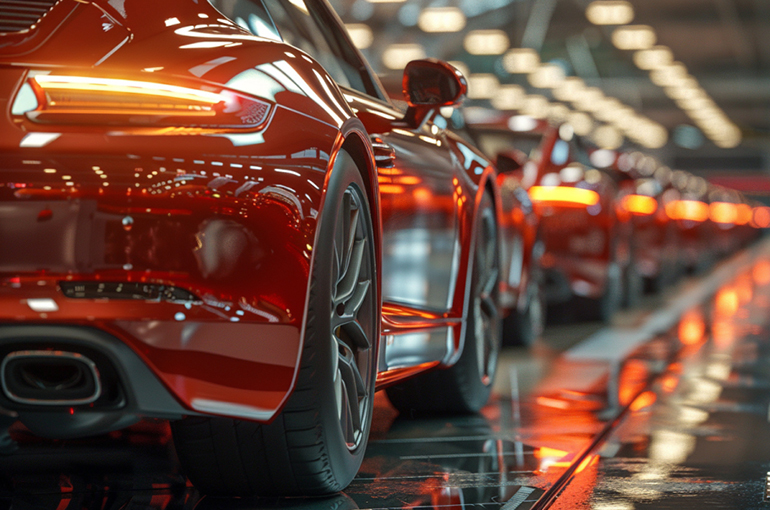 China to Intensify Crackdown on Self-Harming Competition in Auto Industry
China to Intensify Crackdown on Self-Harming Competition in Auto Industry(Yicai) June 3 -- China will step up efforts to curb involution-style competition, or excessive and self-defeating competition, in the auto industry after recent price cuts triggered intense concern about a renewed price war.
Disorderly price wars are a typical manifestation of involutionary competition, an official at the Ministry of Industry and Information Technology said recently, adding that “there is no winner in a price war, nor a future.”
The ministry has made clear that it will intensify the crackdown on self-harming competition in the sector, promote the industry’s optimization and adjustments, step up random product inspections, work with other agencies to stamp out unfair competition, and take the necessary steps to maintain a fair and orderly market environment, protect consumer interests, and promote the sector’s high-quality development.
The term “involution” refers to a situation where competition becomes counterproductive, leading to diminishing returns for all parties involved. In the case of China's auto industry, it has taken the form of aggressive price cutting that saps carmakers' earnings and technological progress.
According to a statement by the China Association of Automobile Manufacturers on May 31, a certain automaker significantly cut prices on May 23, with many other carmakers following suit, leading to panic over a new price war. Companies should compete fairly, not sell goods below cost, and avoid false advertising, the association said.
Some carmakers slashed prices again last month, alarming the industry and also giving rise to the possibility that they may sacrifice quality for sales, said Zhang Jinhua, chairman of the China Society of Automotive Engineers.
Price wars lead to declining profits throughout the supply chain, said An Tiecheng, chairman of China Automotive Technology and Research Center. If sustained long-term, they undermine the ability to invest in research and development and create hidden product quality risks, outcomes that run counter to the industry’s long-term development interests, he added.
Involution has caused parts prices to fall 10 percent to 15 percent a year, worsening upstream operations and making it hard to prevent suppliers from cutting quality in some respects, An pointed out. Downstream, business conditions for dealerships have deteriorated, with some even going bankrupt, impacting the timeliness, convenience, and reliability of after-sales service, he said.
In cases where businesses fail, suppliers no longer provide after-sales support, sharply increasing the risk that intelligent features such as software updates will be interrupted, leaving products potentially unusable at any time, An noted.
An proposed streamlining channels for corporate innovation, guiding firms toward healthy rivalry, and steering them away from low-price competition toward innovation-based competition, while strictly blocking illegal industry behaviors and rectifying the market environment.
Possible administrative measures by the government include strengthening penalties for firms violating laws and regulations within the industry and further implementing various measures proposed by ministries on comprehensive governance of involution, said Dong Yang, chairman of the China Automotive Power Battery Industry Innovation Alliance.
For example, inspections should focus on companies' issues with delaying payments to parts suppliers and requiring the implementation of government requirements to shorten payment periods, Dong noted, adding that this will have a big impact on carmakers' cash flow, limiting their ability to engage in price wars.
Editor: Martin Kadiev